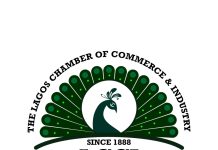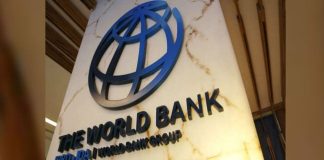The Nigerian economy recorded a total foreign exchange inflow of $24.71bn, figures obtained from the Central Bank of Nigeria has revealed.
The apex bank said the inflow was recorded as a result of the continued stability in the foreign exchange market promoted by improved dollar liquidity at the Investors’ and Exporters’ window of the market.
This, according to findings, has been driving the exchange rates towards convergence in all segments of the market.
Investigations revealed that out of the $24.71bn, funding from the CBN was estimated at $8.81bn, representing 28.5 per cent of the total inflow.
It was gathered that autonomous sources accounted for the larger balance of $15.91bn, representing 71.5 per cent of the total.
Finance and economic experts, who spoke on the foreign exchange inflow, said that the demand management policy of the Federal Government was responsible for the inflow.
They, however, said while the current administration had made remarkable progress in the area of reducing inflation and increasing external reserves, its performance in the area of job creation, poverty reduction and economic diversification was below average.
Speaking on the development, a Professor of Finance and Head, Banking and Finance Department, Nasarawa State University, Uche Uwaleke, said, “The recent measure by the CBN with respect to forex management is chiefly aimed at narrowing the wide gap between the official and parallel market rates as well as improving access to forex for Personal Travel Allowance and payment of school fees abroad.
“I am sure that the CBN is under no illusion that the tiered exchange rates which this forex policy has brought about will halt the slide in the value of the naira.
“While admitting that a complete currency float is capable of unifying rates and reducing round tripping and speculative activities, toeing such a path will be suicidal for an import-dependent economy that depends on a single commodity for much of its forex inflows.”
He said to strengthen the rate of exchange between the naira and the dollar, there was a need for well-coordinated fiscal policies to pursue import substitution and enhance the competitiveness of local production with a view to curtailing forex demand.
He said, “The government should fast-track efforts to improve the ease of doing business and the state of infrastructure in order to attract foreign investments as well as develop multiple streams of earning foreign exchange.”
Also, a former Managing Director, Unity Bank Plc, Mr. Rislanudeen Mohammed, said the problem of exchange rate which the current administration met when it assumed office in 2015 had yet to be fully addressed.
He said, “The government met two major challenges when it assumed office in 2015. The first is the issue of foreign exchange and the second is petroleum subsidy, which is a major issue that has yet to be resolved.
“After the recession, the economy trajectory has been showing positive signs even though the growth rate has been shaky. Fourth quarter GDP growth rate was 2.11 per cent while we have a contraction to 1.95 per cent in the first quarter.
“If you look at the growth trajectory, we are growing but it’s shaking. Inflation is going down; reserves are improving; but we have the problem of rising unemployment, which the government is yet to deal with despite all the talk about the N-Power programme.”













